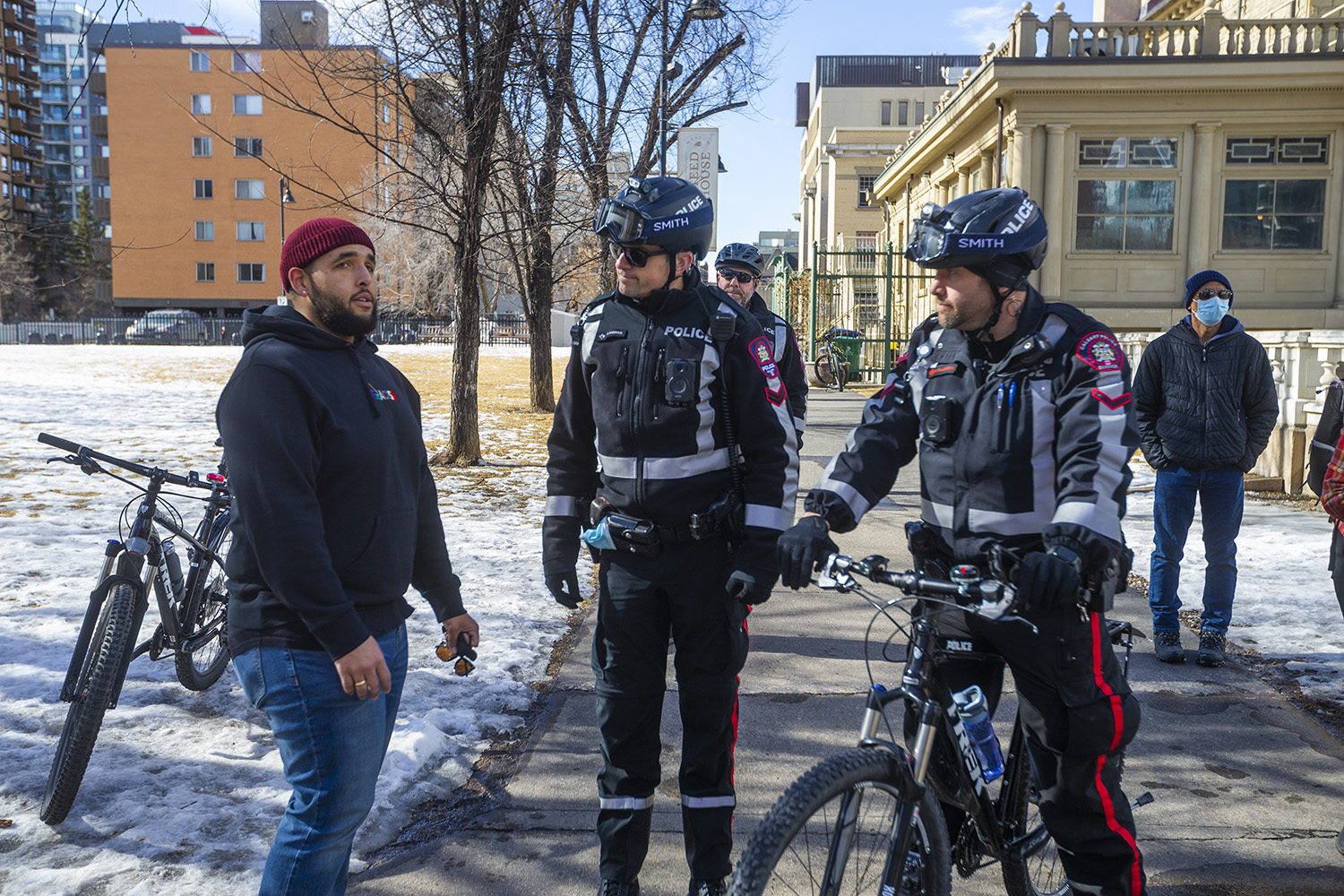Given the relative post-injunction protest peace in the Beltline, Ward 8 Coun. Courtney Walcott asked why the injunction wasn’t sought sooner.
Walcott asked about the injunction during question period at Tuesday’s Combined Meeting of council, after two weeks of subdued activity in the Beltline.
Disruptive protests had been going in for months in the area. It wasn’t until he encouraged area residents and business to call Calgary 311, plus the mobilization of a counter-protest, that the city – and police – took more decisive action.
The injunction was sought and granted two weeks ago.
“CPS Chief Neufeld has stated that the successful application to this injunction is excellent news for our community,” Walcott said.
“This is the exact tool we needed as we all work together to return to a sense of normalcy to the Beltline community.”
Walcott followed up by asking why it wasn’t done sooner, given the size of the protests.
City solicitor Jill Floen said an injunction is a discretionary court order prohibiting activity, and it is difficult to obtain.
“To be successful, it’s necessary to have sufficient evidence in place which takes time to collect,” Floen said.
“In addition, in this particular case, in order to have any practical utility, it was necessary to collaborate with and be aligned with law enforcement officials, which also takes time.”
She said once those two pieces were in place, they sought the injunction and it was granted.
Coordination with police
Coun. Walcott also asked about the support offered to Calgary police.
“What came with those offers?
Community Services GM Katie Black said, as Walcott had earlier pointed out, that the Calgary Police Service was the lead agency. They respond to the requests of the lead agency, she said.
She said weekly meetings were held to coordinate security and enforcement during the protests, based on risk assessment.
“Based on the risk assessment, police will determine which city services what kind of response would be indicated, and we would discuss together what we could provide,” Black said.
That could include enforcing bylaw and noise violations, traffic management, or working a little further afield on some of the other root cause issues.
“We work closely together on that,” she said.
Afterward, Coun. Walcott said he understood the response but was frustrated. He had hoped the situation would have been dealt with sooner.
“It wasn’t until the evidence was collected to the degree that was necessary, which was only last two weeks ago, that the application even began,” he said.
“That’s a frustrating answer. It’s frustrating for citizens who’ve been dealing with this for months. It’s frustrating for me, it’s frustrating for the officers that have been honestly watching and seeing these protests happen. But it is a reality that we’re dealing with now that’s going to help better prepare us for what comes next.”


